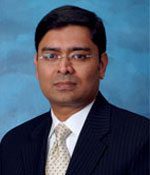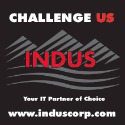
Last night, the WashingtonExec STEM Council held its second event of 2013: The Workforce of Tomorrow are Your Kids Today. Why STEM is Critical to their Success!, The panel, held at The Nysmith School for the Gifted, brought over 130 people in industry, government, non-profit, and academia to discuss local STEM resources, education and student perspectives on STEM.
Bala Sundar, Founder, President and CEO of SyApps, LLC, spoke to the group about his personal experience as a parent wanting to keep his children engaged in science and math. A parent of now one high schooler and one elementary schooler, Sundar shared the resources he and his family have used over the years in Northern Virginia, Washington, D.C. and Maryland.
Sundar will also offering his perspective about STEM March 8 at WashingtonExec‘s inaugural STEM Symposium. The event promises to bring together more than 500 K-12 students, parents and industry professionals to talk about STEM education and careers. Leidos will serve as the event’s presenting sponsor.
WashingtonExec: What kinds of STEM related extracurricular activities do you recommend for students in pre-K, elementary, secondary or postsecondary levels?
Pre-K –
- Visit a Science Museum,
- http://www.ncm.museum/ (National Harbor)
- http://www.c-mor.org/ (Richmond)
- http://www.thechildrenssciencecenter.org/ (Northern Virginia – Coming Soon)
- Do simple projects at home;
- Explore Google RISE (Roots in Science and Engineering) http://www.google.com/edu/rise/
Elementary –
- First Lego League Robotics, http://firstlegoleague.org/
- Math Olympiad, http://www.moems.org/
- Science Olympiad, http://www.soinc.org/
- Johns Hopkins Talent Search, http://cty.jhu.edu/talent/
- School Science fairs – reach out and you will be surprised how much organizations are willing to help – Johns Hopkins Medical University has a division called LCSR (Laboratory for Computational Sensing & Robotics).
Middle School –
- e-cybermission (grade 6 through 9) conducted by Army, https://www.ecybermission.com
- Lego Robotics, http://firstlegoleague.org/
- School Science fairs,
- Google Science Fair (age 13 to 18), https://www.googlesciencefair.com/
- Discovery education young Scientist annual challenge (Grade 5-8), http://www.youngscientistchallenge.com/
- Johns Hopkins Robo Challenge https://cogito.cty.jhu.edu/36340/johns-hopkins-robo-challenge/
- Rocket challenge (Grade 7 through 12) conducted by TARC. http://www.rocketcontest.org/
High School-
There are plenty of outside school programs such as:
- Biology Olympiad, http://www.usabo-trc.org/
- Chemistry Olympiad, http://portal.acs.org/portal/acs/corg/content
- Intel Science fair, http://www.intel.com/content/www/us/en/education/competitions/science-talent-search.html?cid=sem118p5801
- Google Science Fair, https://www.googlesciencefair.com/
- Siemens Science Fair, http://www.siemens-foundation.org/en/competition.htm
- e-cybermission, https://www.ecybermission.com
- Lego Robotics, http://firstlegoleague.org/
- Rocket challenge conduct by TARC, http://www.rocketcontest.org/
- Johns Hopkins University Robo Challenge, https://cogito.cty.jhu.edu/36340/johns-hopkins-robo-challenge/
Summer internships-
- ASSIP (Aspiring Scientist Summer Internship Program) from George Mason University, http://assip.cos.gmu.edu/
- MITRE summer internships on computers,
- AFRRI (Armed Forces RadioBiology Research Institute.
The panel also included Ed Swallow, Vice President Business Development, Federal and Defense Technologies Division at Northrop Grumman Information Systems, Dr. Reginald Brothers, Deputy Assistant Secretary of Defense for Research, and Susan Lavrakas, Director of Workforce at the Aerospace Industries Association (AIA).


